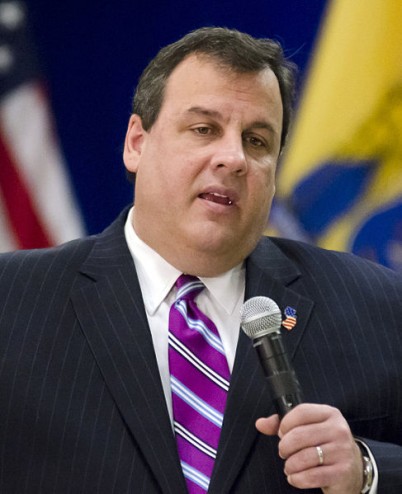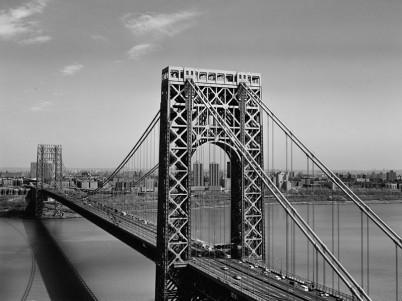By ZACHARY OLSAVICKY
Opinion Editor
Few things about politics tend to rankle voters quite like gridlock. It’s existed since time immemorial, slowing the legislative process and bringing out the best—and often worst—negotiating skills in politicians. Though last autumn’s government shutdown remains the most notorious example of how gridlock hurts citizens, a new, far more literal example is unfolding in New Jersey—and it could drain the star power of a top contender in the 2016 presidential race.

The scandal involves New Jersey governor Chris Christie and the closure of two lanes on the George Washington Bridge, a major thoroughfare between Fort Lee, New Jersey and Washington Heights, New York. The lanes, reserved for commuters from Fort Lee, were closed without advance notice, leading to major traffic delays for four days. Though it sounds like a hilarious example of life imitating art, it’s hard to look at in a funny light—emergency services were late in responding to at least four incidents, and an elderly woman died in an ambulance caught in the traffic.
At the time, officials made vague claims that the lane closures were part of a traffic study on the bridge. But rumors persisted that the closures were political payback directed at Fort Lee mayor Mark Sokolich, who did not endorse Christie in his re-election for governor. Those rumors turned into a harsh reality on Tuesday with the release of e-mails between a Christie administration official and a Christie-appointed official at the Port Authority of New York & New Jersey. Not only did the officials plan the closures months in advance, they exchanged trite, mocking messages about the delays as they happened.
Officials may have conceived of this as a minor incident with an easy cover-up, but the damage goes beyond their political reputations. It’s the kind of incident that undermines trust in government—these officials are supposed to serve the public, not have the public serve their revenge fantasies. Though governments are far from perfect in serving the public—look at the launch failure of Healthcare.gov—incidents of poor functionality are a far cry from malice and manipulation.
Though Christie denies knowing anything about the lane closures, it’s very hard to envision a scenario in which he was unaware of the plan. Political offices are highly coordinated entities—the right hand always knows what the left hand is doing. But let’s take Christie at his word, that he was unaware of the scandal. What does it say about his leadership skills that he wouldn’t be aware of goings-on like this? That he would hire these people in the first place?
It’s a bad enough example to consider on the state level, but when thinking about his profile as a candidate for president, the consequences could be even worse. Say a senator was unwilling to support one of Christie’s bills: would she or he have infrastructure projects halted in their state? While most political payback comes in personal form, the lane closures go beyond that mark and affect the day-to-day lives of citizens. Pulling strings to impact funding or operation of government services on a national level would lead to even worse consequences.
This irony may be grander than the gridlock itself: Christie, a leader in a party that strongly believes government should stay out of citizens’ lives, is involved in a scandal where government has impacted peoples’ day-to-day lives. Forget a run for president: how much more difficult would a run for the Republican nomination now be? It’s still unlikely that a Tea Party favorite would win, but staunch conservatives like Rand Paul now have a strong talking point against the governor.

Marginalizing Christie’s role in the 2016 GOP primary race would be a shame for the party. Well before the shutdown, he strongly criticized Speaker Boehner and congressional Republicans for failing to pass an aid bill for Hurricane Sandy relief. His political stances are still within the norms for the GOP, but he seems to recognize the notion that passing legislation he disagrees with is better than passing no legislation at all.
For all the nice things that can be said about his record, it’s hard to look past the bridge controversy and the incompetency that it suggests. Whether people want big government, small government, or something in between, there can be universal agreement that government should be ethical. Overcoming corruption, whether in the form of the recent NSA surveillance program or the Tuskegee Experiment, has always been part of the American challenge of making a more perfect union. If Chris Christie is running an office where political payback is an ideal, it’s hard to justify his playing a role in America’s future.

